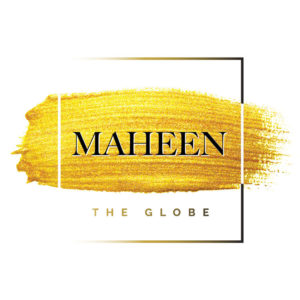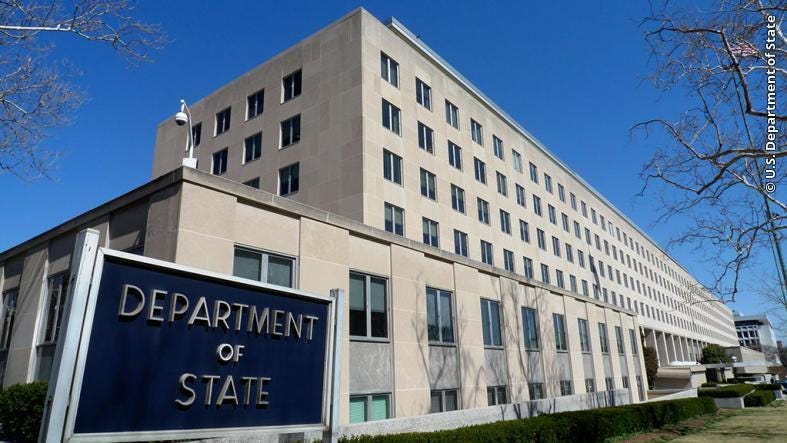“How can we justify a dollar in the hands of a foreigner is more valuable than a dollar in the hands of an American taxpayer?” Peter Maracco, director of the U.S. State Department, questioned in his opening statement at the State Department’s public listening session on Friday, February 14th.
Mr. Marraco emphasized “America First” policy when it comes to foreign assistance – the question posed to the 1000 attendees was: How to Use U.S. Foreign Assistance to Make America Safer, Stronger, and More Prosperous?
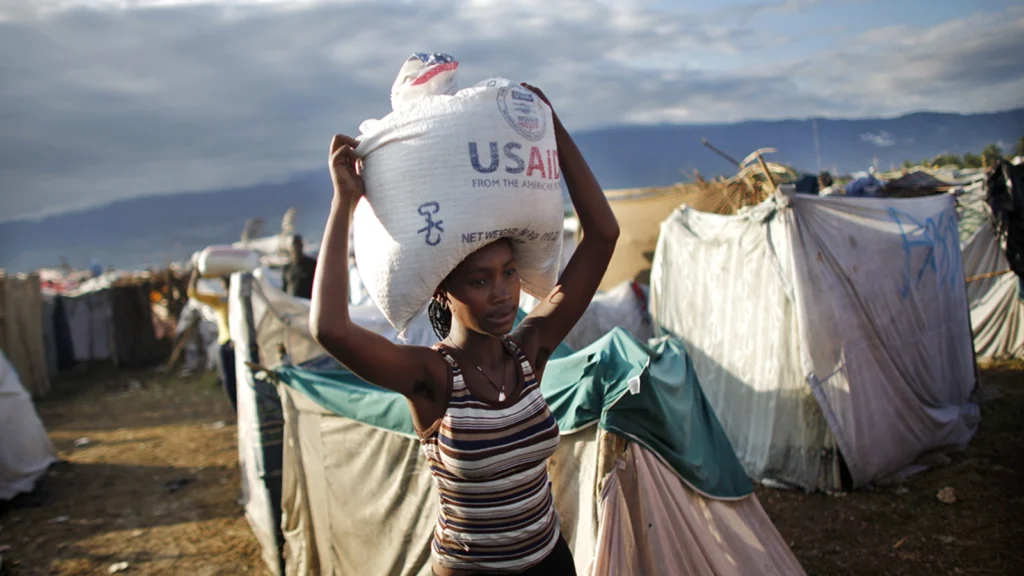
The US State Department director alluded that foreign assistance has lost the confidence of both the American public and the President. “We need to fix this, and we need to fix it quickly,” he urged. He proposed the establishment of a cohesive strategy for distributing assistance, advocating for a “one voice” policy as our primary goal. This approach would eliminate the confusion caused by multiple agencies exerting influence abroad and would promote greater cohesion and consistency in our foreign assistance efforts.
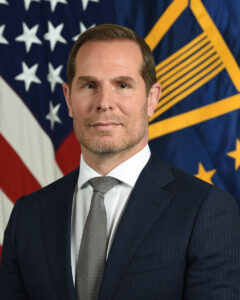
“We also want to be efficient and effective, and most importantly, we want to make sure we return the value to the American people, Peter Maracco said. “We strive to be efficient and effective, ensuring we provide real value to the American people,” he emphasized. He said that the foreign assistance should not be assumed, and we need to operate on a zero-based budget, which has led to the current pause—an effective measure that allows the US government to handle necessary waivers and exceptions.
The words of Akhtar Badshah, a board member of Global Washington echoed in my mind “How do we bridge the gap between the super haves and the super have-nots?,” he had remarked, during the 15th annual GlobalWA Conference. With this current freeze and potential ending of global projects, the gap between super have and havenots will continue to widen.
As background – following last month’s inauguration, Peter Marocco took decisive action by shutting down all U.S. Agency for International Development (USAID) programs and freeze foreign aid, placing almost all agency staff on administrative leave. While the courts have temporarily lifted some of these orders, much of USAID’s work has been effectively halted. USAID supports crucial programs for malaria, tuberculosis, leprosy, and maternal and child health services. The U.S. funding freeze has left thousands of healthcare workers facing challenges, jeopardizing progress in these vital areas.
Last month, Secretary of State Marco Rubio announced an important exemption for lifesaving humanitarian efforts from the foreign aid freeze, bringing hope to global health workers. However, a recent directive has now suspended this vital exemption.
US State Department Live Public Listening Session
The intent of the two-hour session was to listen intentionally to the global impact stakeholders that can help make the case for foreign assistance and how it benefits America. Several folks unmuted their mic and came forward sharing their perspectives.
Several attendees spoke in favor of foreign assistance, saying such partnerships directly benefit consumers, the U.S. economy, and contribute to the resilience and productivity of the supply chain that supports products Americans rely on. These collaborations can yield substantial benefits by addressing gaps in infrastructure, workforce capacity, and access to investment and technology, which otherwise limit our ability to reduce product costs. Some said that by training people abroad, we are creating ambassadors of US and showing us in a soft light.
At the end of the session, Brian Fonseca, the moderator noted the five crucial concepts that emerged during the session and will shape US’ foreign assistance strategies: – Diplomacy – Soft Power – Security – Humanitarian Aid. These principles will not only enhance our global relationships but also foster stability and compassion worldwide. MTG has captured some of the crucial conversations and topics brought up by the attendees as they made a case for U.S. Foreign Assistance.
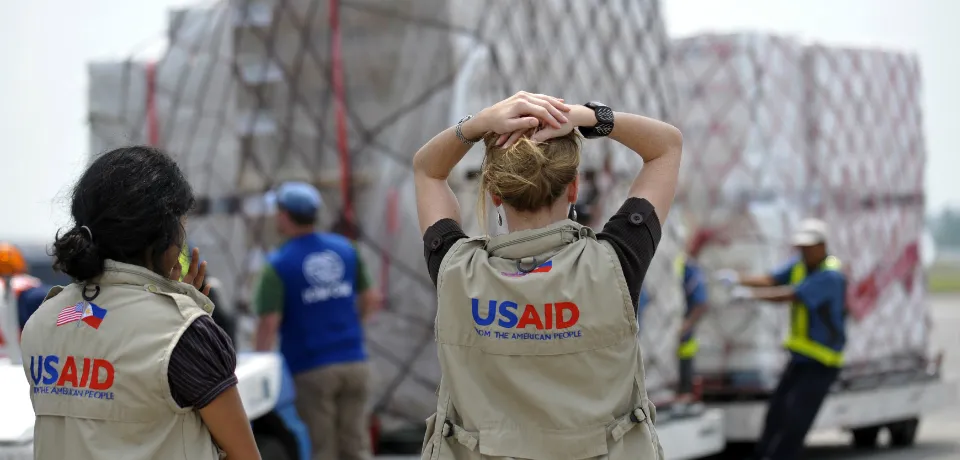
Making a case for USAID
A political appointee from Trump’s first administration, who led the USDA’s National Agriculture and Governance Institute, highlighted the vital role of USAID programs.
USAID funding enriches the U.S. and cultivates future leaders who become effective ambassadors, fostering strong economies and trading partnerships. We have a moral obligation to assist regions in need. To enhance the efforts, he proposed:
- Implementing strong congressional oversight for responsible fund usage.
- Seeking stakeholder input to understand local conditions, allowing our scientists to address complex issues effectively.
To engage universities, we should:
- Create transparent processes to ensure projects align with national interests.
- Collaborate with federal agencies like the USDA to maximize expertise.
Corruption in USAID
A former USAID worker and a global fellow in Catholic services revealed” the agency has recently lost the trust of the American public. I was fired for exposing corruption related to waste, fraud, and abuse, and the inspector general has failed to address these critical issues,”. Yet, there is a vital opportunity for foreign aid programs to rebuild this trust and resume their impactful work.
Defense prioritized over Aid?
Tyler Pry, who works for a peacebuilding organization in Washington, D.C. said as a proud Minnesotan, he recognizes the critical importance of international efforts in this field. It’s alarming to see the House push for a substantial increase in defense spending while simultaneously cutting U.S. aid. This approach undermines fiscal responsibility and raises serious concerns about our priorities.
If we are genuinely focused on eliminating waste and fraud, the Department of Defense (DoD) must be held accountable and pass rigorous audits. The trend of slashing aid amounts to an ideological attack on an essential agency for saving lives. Without this vital support, countless people may wrongly believe that the military might be our only path to safety. We cannot rely solely on weapons; effective diplomacy is absolutely essential.
Focusing foreign assistance narrowly on the “first order of impact”—prioritizing only financial returns—suggests that American lives are guaranteed safety as long as we sell goods. This is an unacceptable and shortsighted perspective. As an American and a global citizen, I demand a comprehensive understanding of safety and security that recognizes humanitarian aid as vital for achieving lasting peace and stability.
Faith leaders as trusted messengers
Adam Phillips, Chief Strategy Officer at Interfaith America, has been advising faith-based organizations in effective partnerships with the U.S. government for nearly 25 years. During the session, he stressed that faith leaders serve as trusted messengers, often living in the communities they assist. To align lifesaving aid with an “America First” agenda, we must collaborate with American religious institutions and organizations like World Relief, Catholic Relief Services, and those supporting orphans in Zambia, like AC. How can we prioritize these groups in our aid approach for greater impact?
As a global fellow in Catholic services, he emphasized that the U.S. foreign aid should be seen not just as funding programs, but as a commitment to our shared humanity. It’s essential to focus on how these funds improve the lives of our global brothers and sisters. Foreign aid fosters stability, supports livelihoods, and builds trust among nations. He said he has witnessed first hand how resources can effectively uplift those less fortunate. We must remember that we are dealing with real people, not just programs.
USAID inefficient payments process
Christopher Lynch highlighted small and medium-sized contractors’ needs and advocated simplifying the processes to reduce overhead and improve efficiency, especially regarding compliance and payments with USAID and USDA. The paperwork is excessive and outdated, he said, rooted in systems designed in the 1960s. However, new tools now allow us to process payments within days instead of weeks.
Utilizing vouchering systems that automatically generate standardized vouchers can decrease errors and speed up payments. Implementing blockchain contracts will enhance security, and incorporating AI tools will optimize our workflows.
Auditors make up 10-20 percent of the workforce in typical AID missions. By adopting these innovative methods, we can significantly lessen the auditing burden, making it easier for small organizations to offer creative solutions that drive progress.
Despite court rulings stating that the government must unfreeze foreign assistance, especially for work that has already been completed and budgeted for, the current payment system is ineffective. Without access to those funds, many companies are at risk of disappearing. This is a plea from a small rural town in the United States: we need to resolve both micro and macro issues so that we can continue to innovate as we have for decades.
Trade is the best aid.
A policy analyst in associate faculty at a midwestern university highlighted the importance of not backsliding on global health issues, precisely economic issues. People say “trade is the best aid,” insinuating that US foreign assistance should be reduced in the form of better economic partnerships.
He was concerned that the suspension of aid and global health initiatives poses a significant threat to the economies of developing nations. He said it is critical to acknowledge the first-order and second-order effects, particularly concerning the urgent need for care for HIV and tuberculosis—both of which are entirely treatable yet continue to devastate lives.
He gave the example of Eswatini where 25 percent of the population is living with HIV/AIDS, the economic fallout is detrimental. He said while “trade is the best aid,” USAID and foreign aid must prioritize the preservation of essential health services.
Americans are passionate about wildlife
Kate highlighted that the USAID biodiversity program is a powerful tool for soft power, enhancing human health and bolstering US diplomatic efforts against human and wildlife trafficking. Mr. Morocco’s dismissal of this program is stunning; it delivers substantial returns on investment in our foreign policy. Americans are passionate about wildlife, and we will not stand by while the last elephant or rhino faces extinction on our watch. We demand reassurance that our foreign funding priorities will continue to support these critical, bipartisan American programs!
PEPFAR
An appointee at the State Department during Trump’s first term, said he witnessed the transformative impact of PEPFAR on global HIV/AIDS management. This program not only commands bipartisan support but is also recognized in Project 2025, page 63, as the definitive model for effective aid, having decisively saved over a million lives through its localized approach.
It’s imperative to understand how PEPFAR interfaces with the CDC and USAID concerning grant funding. Director Morocco must ensure that PEPFAR has all the necessary resources for its operations. The waiver for PEPFAR and President Trump’s endorsement underscore the program’s critical importance. Maintaining continuity in this initiative is vital for the ongoing fight to save lives.
Tetra Tech is the Chief of Party for the USAID-funded Power Africa initiative, a critical ten-year program designed to empower West Africa with a robust $300 million investment.
It is essential to recognize the diverse stakeholder groups at both state and sub-state levels if we are to navigate this landscape effectively. By exploring these nuances, we can generate innovative ideas that directly address the needs of all involved. While larger market players may pursue international expansion, smaller businesses must focus on establishing efficient supply chains. For farmers, the ability to sell their commodities is not just important—it is imperative for their success. Understanding these distinct perspectives will significantly enhance our discussions and drive effective, impactful solutions.
Geopolitical nature of healthcare
I am not an American, but I have worked extensively at the intersections of American companies in the private sector. One question that arises is: how do Americans benefit from foreign aid? The geopolitical nature of healthcare plays a vital role in this. I have observed organizations like the WHO and the Global Fund for 20 years. Health is one of the key factors in maintaining the geopolitical equilibrium of the world, alongside climate issues. We need to place it at the center of our discussions.
I have also monitored U.S. leadership in organizations like the WHO. Regardless of the administration in power, the U.S. has successfully driven global health policies that have benefited American society. This includes efforts related to communicable diseases and mental health. The United States has made significant strides in addressing infectious diseases, resulting in direct benefits for both the American public and businesses—this reflects the reality of industrial policy in action.
The future of U.S. foreign assistance
“There will be a period of pause and then we’ll move quickly and intentionally and get on the other side within a few weeks”, Fonseca said, “I can’t speak on behalf of the US State Department, but the spirit of this is to inform the State Department what all you’ve said so that it can continue to move forward with this foreign assistance program.” he reassured.
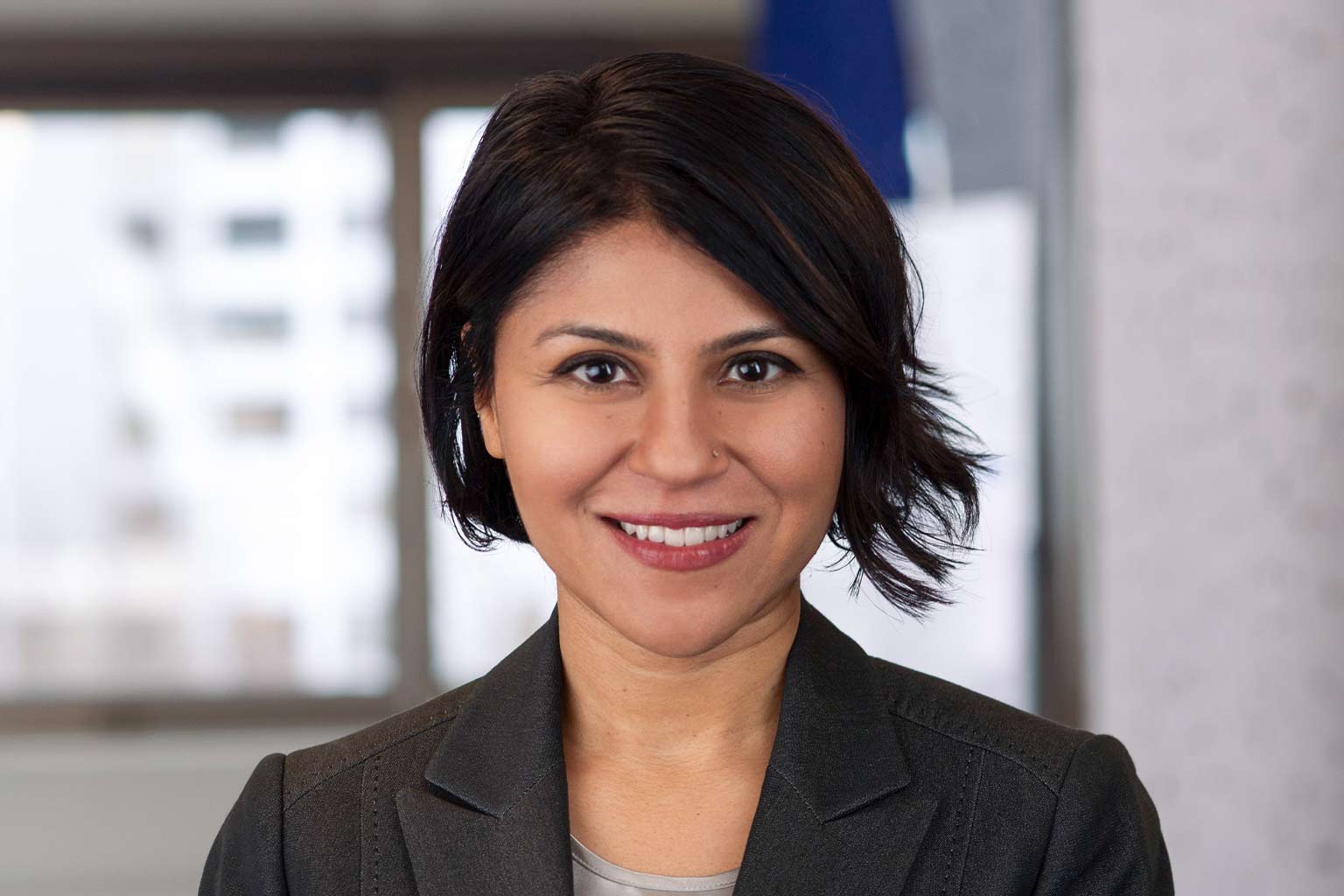
Maheen Mustafa reported this feature. She is a journalist, global strategist and founder of MTG, a Seattle-based media outlet and production house that aims to elevate and amplify BIPOC and immigrant narratives and perspectives. Maheen’s beats are social impact, wellness, business, culture, climate, race and global news. Twitter: @MaheenM_.
